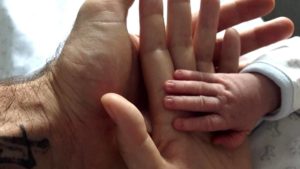Endometriosis and your fertility

When I was training in New York my surgical mentor was Dr. Farr Nezhat. I have never treated such severe cases of endometriosis as I saw there. Dr. Nezhat is a pioneer in minimally invasive techniques and together we received patients from all over the world for treatment. He is the founder of EndoMarch, which is now a world-famous trek that takes place in several countries. The reason is simple, it is to create awareness about a very common pathology that has many victims suffering in silence.
What is endometriosis ?
Are they just strong cramps with your period?
Does it mean you can't have babies?
These some of the misconceptions associated with the condition that I hope clear up in this blog!
Endometriosis is one of the most common causes of chronic pelvic pain. It affects 1 in 10 women, but many do not understand the symptoms, making it difficult to diagnose. In fact, the time from symptom onset to diagnosis can take up to 6 years!
There is an important genetic component, so if your mother or sister has endometriosis, you have a greater chance of suffering from it. It is important to know that symptoms can start at any age, which means that you are never too young to have it. Diagnosis is often delayed because the person or relatives believe the sufferer is too young or that menstrual cramps are normal.
Endometriosis explained
- The cells of the internal part of the uterus (endometrium), should only exist in the internal part of the uterus.
- However, in endometriosis these are implanted in other surfaces, ovaries, fallopian tubes, external part of the uterus, intestines and in severe cases even other body organs.
- Every month, when the period arrives, these tissues do what they are programmed to do, that is, they menstruate, however, instead of expelling blood and inflammatory fluid, as the uterus does, it remains inside the body and causes the symptoms.
As I mentioned, endometriosis can be implanted in many different places, so it should not be surprising how many symptoms are associated:
- Excessive and irregular menstrual bleeding including spotting between periods.
- Painful periods where you cannot get out of bed or feel stabbing
- Pain during and after sexual intercourse
- Pain when going to the toilet, sometimes only during your period, this can be confused with irritable bowel syndrome since it can present as diarrhea/constipation.
- Painful urination with periods
- Pelvic pain, spasms and irritation of the pelvic muscles and lower back
Because of this, it is common to see women with severe endometriosis in a consultation who had never mentioned the disease.
Effects of endometriosis on fertility
If left untreated and endometriosis progresses, it can cause infertility by destroying and changing the architecture of the reproductive organs. This condition not only affect structure, but chronic inflammation causes negative effects on the quality and quantity of your eggs.
It is common to see patients in their 30s with ovarian quality and quantity of a patient in their 40s.
In fact, women with infertility are 6-8 times more likely to have endometriosis. Although 30-40% of women with infertility have endometriosis, most women with endometriosis do not have infertility and it is possible to conceive naturally.
Treatment
Studies indicate that treating endometriosis with surgery can increase the chances of pregnancy. However, the patient must be carefully chosen for surgery. This should be reserved for patients who have pain and do not improve with medical treatment. The reason is that there are multiple studies that indicate that performing endometriosis surgery on the ovaries, especially to remove ovarian cysts called endometriomas can decrease ovarian reserve!
So, if you know that endometriosis is an inflammatory problem and that it affects the quality and quantity of eggs, it is better to reserve surgery for selected patients since you can potentially worsen the situation.
There are medical treatments as simple as non-steroidal anti-inflammatory drugs such as ibuprofen, naproxen, etc. or hormonal drugs such as contraceptives. Then treatments get more complex until you reach the recently approved FDA Orilissa.
As it is a progressive condition, it is advisable to freeze eggs at age 30 if you do not have a stable partner to preserve fertility and have a plan B in case you cannot conceive. At this age it is advisable to freeze a minimum of 15 eggs.
Having endometriosis with infertility that is seen in ultrasound indicates advanced endometriosis. Therefore, it may be advisable to perform in vitro fertilization to achieve pregnancy before or instead of performing surgery that potentially reduces the ovarian reserve. During pregnancy, the symptoms of endometriosis are usually temporarily relieved.
Endometriosis can have totally different presentations between patients, so the plan must always be individualized taking into account the reproductive future of the patient. Also, do not forget about your partner since at the end of the day it can affect both of you psychologically. Please reach out to us and discuss your options before undergoing surgery or treatment.
Dr. Mario Vega Croker, Scientific Director, Panama Fertility.



